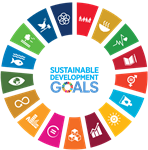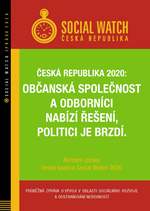Social Watch news
Published on Thu, 2020-12-03 19:54
The General Assembly (GA) will host its 31st Special session in response to the coronavirus disease (COVID-19) pandemic on 3 and 4 December 2020. The UN Charter (Chapter IV, article 20) provides for the General Assembly to meet in special sessions which can be "convoked by the Secretary-General at the request of the Security Council or of a majority of the Members of the United Nations." UN special sessions are unusual, this will be 31st in the life of the UN and only the sixth since 2000. As the COVID-19 pandemic’s widespread effects range across development, peace, security, and socioeconomic affairs, there is no doubt about the special measures that the global community must address to confront the global pandemic. |
Published on Tue, 2020-11-17 00:00
This was the theme of today’s session of the 11th Regional Assembly of the Latin American Campaign for the Right to Education (CLADE), which is taking place from October 13 to November 26, this year. Carrying out a process leading to the Assembly, a series of seven virtual public meetings are being organized, in which the current regional and international situation of the human right to education is analyzed, contributing to the definition of political action strategies for CLADE’s network in the next two years. |
Published on Mon, 2020-11-16 16:56
Supported by a supermajority in parliament and three landslide elections, in 2010, 2014 and 2018 the government of the Fidesz party, led by Prime Minister Viktor Orbán has severely undermined the system of checks and balances, eliminated political and professional autonomy of most of the state institutions and allowed the capture of the state by influential groups – oligarchs and political players. In October 2019, after years of paralysis and disarray of the Hungarian opposition, they obtained a surprise victory at the municipal elections, announcing changes that are still too early to predict. |
Published on Mon, 2020-11-16 16:44
Nepal should recover from the human and economic devastation caused by COVID-19 by accelerating efforts to achieve SDGs. Nepal needs clamor for policy attention and scarce resources, there is great temptation during crisis to react only for the immediate term. That would be a big mistake: as every recent crisis has revealed, Nepal is extremely vulnerable to underlying threats that can quickly become existential for large sections of the population. |
|
Published on Mon, 2020-11-16 16:25
“We are only as safe as the most vulnerable among us” |
Published on Tue, 2020-11-03 19:32
Following the opening of the 75th Session of the UN General Assembly (UNGA) and a series of High-level meetings and events parallel to the General Debate, the UNGA plenary and committees have shifted to a pattern wherein the Member States debate and negotiate resolutions on a range of topics. Across the UNGA agenda, priorities include COVID-19 recovery, the UN Decade of Action--the final 10 years to achieve the Sustainable Development Goals (SDGs) ---and the call for necessary reforms for the UN to be effective across management, peace and security and development. Reform to the UN Development System (UNDS) will be a prime agenda item of the UNGA Economic and Finance (Second) Committee negotiations, with an outcome resolution of its Quadrennial Comprehensive Policy Review (QCPR) expected in November or December. |
Published on Tue, 2020-11-03 00:00
Social Watch Czech Republic releases an annual report evaluating the progress of the Czech Republic towards reaching the UN Sustainable Development Goals. The report is divided into five sections: people, planet, prosperity, peace, and partnership. The Czech Republic is failing to meet many of the UN sustainable development targets, with progress only visible in certain areas, according to a report last week from Social Watch CZ, a non-governmental organization that monitors compliance with the goals. |
Published on Mon, 2020-11-02 15:43
The presentation by Finland of its second VNR in 2020 initiated a new kind of cooperation between state authorities and civil society, with non-governmental actors presenting their assessment in the official report. Both views are largely in line, but civil society is more critical. There is no extreme poverty in Finland and a comprehensive social security covers the whole population. Still there are challenges in relation to poverty and inequality. A crucial problem is that increasing in inequalities and social exclusion seem to accumulate and extend across generations, causing intergenerational transmission of poverty. |
Published on Mon, 2020-11-02 15:27
As a result of longstanding failures in dealing with internal and external challenges, and in particular conditionalities imposed by IMF loans, Jordan has faced a large series of social and political protests in recent years. In the wake of increasing deteriorations of the economic situation, the demonstrations have received an enormous upswing and received public support from all segments of society. The alternative report on Jordan, prepared by the Phenix Center for Economic Studies, describes the dynamics and the leading role of Civil Society Organizations (CSOs) during the demonstrations, and takes a look at the aftermath of the protests and upcoming challenges. |
|
Published on Mon, 2020-11-02 15:06
Feminist organizations have insisted for decades on the importance of recognizing the systemic role of care work. This invisible work is indispensable for reproducing the labour force and more broadly for sustaining life. The COVID-19 pandemic has transformed this feminist message into an accepted truth. The new coronavirus has forcefully exposed the fragility of human life. All of us face the risk of catching a disease that can kill us. In this context, it is also made very visible that our lives are interdependent. To avoid contagion, we need to take care of ourselves, but we also depend on the whole of society adopting habits of caring. |
SUSCRIBE TO OUR NEWSLETTER









